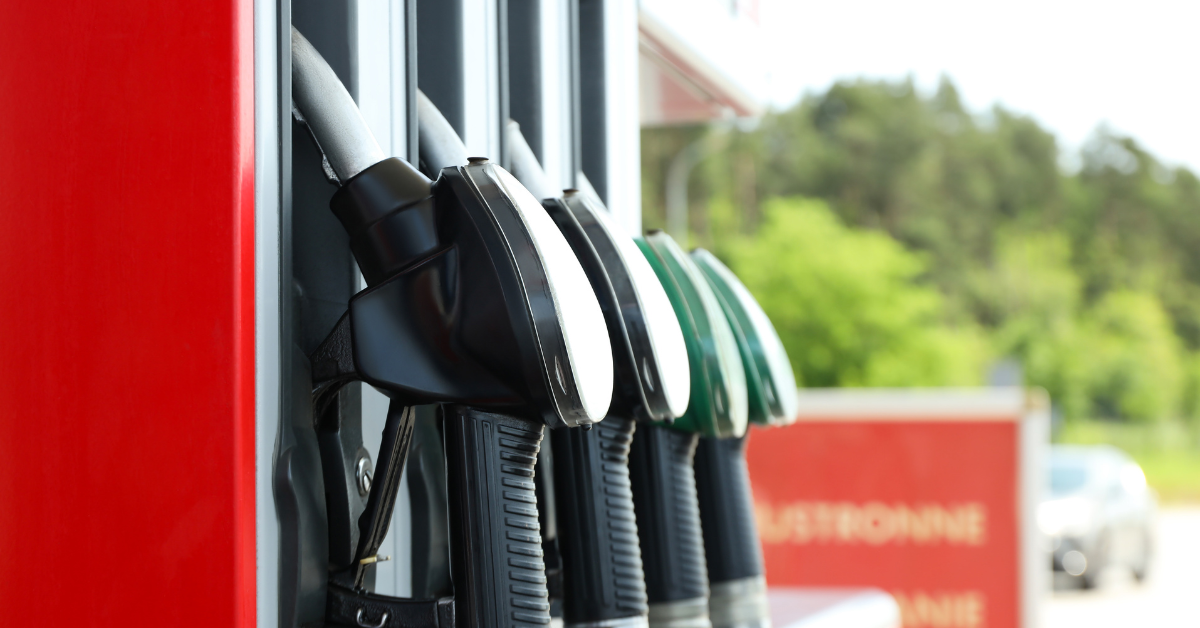EU Directive 2014/94/EU on the deployment of alternative fuels infrastructure requires EU member states and EEA states to improve the information given to consumers who are faced with a choice of fuels for their vehicle. To that end, a CEN standard (*) has drawn up common symbols, or ‘fuel identifiers’, that will be placed on new vehicles and fuel pumps. These identifiers must be in place by October this year, and will start to be increasingly visible in the run up to this date.
When customers arrive at a filling station and open the fuel-filler cap on their vehicle, a common fuel identifier will be visible on both the vehicle and the pump, providing guidance on the fuel that is compatible for use with their vehicle.
In order to assist both consumers and the operators of vehicle dealerships and retail stations to understand these new labels, a coalition of vehicle manufacturers, fuel refiners and fuel suppliers have today published informative brochures. These brochures, in Q&A format, explain the purpose of the identifiers and fuel labels, their design and in which vehicles they will appear.
The brochures are available online at www.fuel-identifiers.eu. They will also be made available in each EU member state in coordination with locally-affiliated national associations and companies.
(*) EN16942, Fuels – Identification of vehicle compatibility – Graphical expression for consumer information.
Note for editors
The brochures are published by the European Automobile Manufacturers’ Association (ACEA), the Motorcycle Industry in Europe (ACEM), the European Confederation of Fuel Distributors (ECFD), FuelsEurope (European petroleum refiners and fuel suppliers) and Europe’s Independent Fuel Suppliers (UPEI).
ACEA represents the 15 Europe-based car, van, truck and bus manufacturers: BMW Group, DAF Trucks, Daimler, Fiat Chrysler Automobiles, Ford of Europe, Honda Motor Europe, Hyundai Motor Europe, Iveco, Jaguar Land Rover, PSA Group, Renault Group, Toyota Motor Europe, Volkswagen Group, Volvo Cars, and Volvo Group.
Contact: Cara McLaughlin, Communications Director [email protected]
More information: www.acea.be │@ACEA_eu
ACEM, the European Association of Motorcycle Manufacturers, is the trade association that represents manufacturers of powered-two and three-wheelers as well as quadricycles (L-category vehicles) in Europe. ACEM members include 17 manufacturing companies and 17 national industry associations in 14 different European countries. About 300,000 jobs depend on the motorcycle, moped, tricycle and quadricycle industry in Europe.
Contact: Mr Ludovic Basset, Public Affairs Manager [email protected]
More information: www.anem │ @EUmotorcycles
The ECFD represents the interests of 10,000 distributors of petroleum products, including domestic heating oil, kerosene, petrol, diesel, gasoil and liquefied petroleum gases (butane, propane, LPG). Its members are essentially family-owned SMEs who supply from the refineries, terminals and their own storage directly to their customers’ tanks. Members include the Austrian Association of fuel and petroleum distributors (WKO), the Belgian Federation of Fuel Suppliers (BRAFCO), Bundesverband mittelständischer Mineralölunternehmen e.V. (UNITI), the French Fédération Française des Combustibles et Carburants (FF3C), and the UK Federation of Petroleum Suppliers (FPS).
Contact: Mr Johan Mattart, Head of Brussels Office [email protected]
More information: www.ecfd.be
FuelsEurope, the voice of the European petroleum refining industry. FuelsEurope represents with the EU institutions the interest of 41 companies operating refineries in the EU. Members account for almost 100% of EU petroleum refining capacity and more than 75% of EU motor fuel retail sales. FuelsEurope aims to inform and provide expert advice to the EU institutions and other stakeholders about European Petroleum Refining and Distribution and its products in order to: · Contribute in a constructive way to the development of technically feasible and cost effective EU policies and legislation. · Promote an understanding amongst the EU institutions and citizens of the contribution of European Petroleum Refining and Distribution and its value chain to European economic, technological and social progress.
Contact: Mr Alain Mathuren, Communications Manager [email protected]
More information: www.fuelseurope.eu │ @FuelsEurope
UPEI, the voice of Europe’s independent fuel suppliers, represents nearly 2,000 European importers and wholesale/retail distributors of energy for the transport and heating sectors, supplying Europe’s customers independently of the major energy producers. They are the interface between producers and consumers, using their own infrastructure and flexibility to supply existing demand for conventional and renewable liquid fuels, as well as non-liquid alternatives as part of the energy transition. They cover more than a third of Europe’s current demand. The organisation brings together national associations and suppliers from 17 countries across Europe.
Contact: Ms Yvonne Stausbøll, Secretary General [email protected]
More information: www.upei.org │ @FuelSuppliersEU



